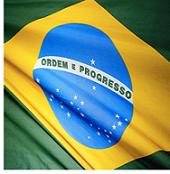Brazil's broadcasts
Brazil candidates begin daily election broadcasts
 Brazil's presidential candidates have taken to the airwaves with the start of daily broadcasts for the 3 October presidential and general elections.
Brazil's presidential candidates have taken to the airwaves with the start of daily broadcasts for the 3 October presidential and general elections.
All free-to-air networks must carry the 50-minute slots, which run twice a day.
Main candidates Dilma Rousseff and Jose Serra used their first broadcasts to focus on their own life stories and avoided criticising one another.
The broadcasts a key campaign tool in Brazil, where TV and radio are the main sources of information for most voters.
The tightly regulated programmes are divided up according to the representation in Congress each candidate's political bloc has.
Dilma Rousseff, the candidate of the governing Workers Party (PT), therefore has three minutes more than Jose Serra of the opposition Social Democratic Party (PSDB).
Both contenders used their first broadcast to speak about their childhood experiences and their passion for Brazil.
Ms Rousseff's film, running to 10 minutes and 38 seconds, also included footage of a passionate endorsement from current president, Luiz Inacio Lula da Silva.
"I'm very happy to know I'll hand over the presidential sash to a comrade of my party, a woman comrade," the president said.
With President Lula's backing, Ms Rousseff, his former chief of staff, has seen her fortunes rise in the opinion polls which suggest she may be on course to win outright in the first round.
For his part, Mr Serra steered clear of criticising the Lula administration during his seven minutes and 18 seconds, choosing instead to emphasise his experience.
"Brazil had advanced a lot in many areas, but is behind in many others, like health, education, transport, public security and drugs," he said.
"The next president will have to face these challenges and turn ideas into reality and this is what I will do."
The Green party candidate, Marina Silva, who is regarded as a significant third force but with no real chance of winning, stressed sustainability in her first slot which ran to one minute and 23 seconds.
The free air time on radio and TV also includes candidates contesting races for Congress, state governors and state assemblies.
Parties are also allowed to run six 30-second advertisements per day.
No joking matter
Faced with the amount of political advertising, one TV comedian has spoken out against a law that forbids any editing or montage of images or audio to make fun of candidates or political parties.
This includes editing interviews to ridicule candidates or distorting their photographs with cartoons.
Marcelo Tas, the host of popular political satire show CQC, said that a group of comedians would hold a parade against the law this weekend in Rio de Janeiro.
"In Brazil we have a very recent democracy. We used to have no freedom of expression at all during the period of the dictatorship," he said.
"Now that we have in power the people who fight for democracy like President Lula we cannot go backwards in issues like freedom of expression."
The law has been in place since 1997, a relic from military rule from 1964 to 1985, but this year the federal electoral court issued a communique saying that it would now be enforced.
Any TV stations which do not comply could be fined in more than $100,000 (£64,000).
(Published by BBC - August 18, 2010)